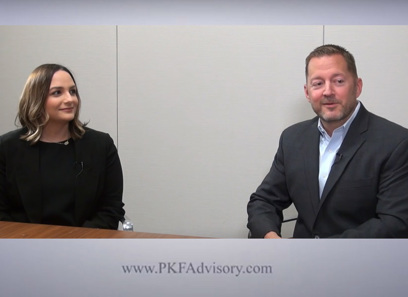The M&A Outlook: Economic Factors That Could Transform Mergers and Acquisitions
The M&A Outlook: Economic Factors That Could Transform Mergers and Acquisitions
Blog Article
Checking Out the Monetary and lawful Aspects of Mergers and Acquisitions Purchases

Introduction of Mergers and Acquisitions
Mergers and procurements (M&A) stand for a substantial segment of corporate strategy, with numerous deals happening internationally each year. These tactical maneuvers are mainly targeted at improving competitive advantage, expanding market share, and achieving functional harmonies. M&An activities commonly fall under 2 distinctive groups: mergings, where two companies combine to form a brand-new entity, and acquisitions, where one company purchases an additional, hence keeping its identity.
The motivations behind M&A purchases are differed. Firms may pursue these strategies to expand their item offerings, enter brand-new markets, or take advantage of technical innovations (Economic factors influencing M&A). Additionally, M&A can act as a method to remove competitors or gain access to valuable intellectual residential or commercial property
The process of M&An entails several stages, including target recognition, assimilation, evaluation, and settlement. Effective transactions need complete due diligence to analyze monetary wellness, operational abilities, and potential obligations of the target business. Furthermore, social positioning between combining entities plays an important duty in making sure a smooth transition and long-lasting success. As services browse the complexities of M&A, understanding the calculated imperatives and possible challenges is essential for accomplishing desired results in a significantly competitive landscape.
Legal Structure and Compliance
Comprehending the legal framework and conformity needs surrounding mergers and acquisitions is vital for navigating the complexities of these purchases - Economic factors influencing M&A. These procedures are regulated by a myriad of laws at both government and state levels, which aim to make certain reasonable competition, protect stakeholders, and copyright business governance criteria
Secret regulatory bodies, such as the Federal Profession Compensation (FTC) and the Securities and Exchange Payment (SEC), impose antitrust laws and securities laws, respectively. Companies need to carry out thorough due persistance to identify any kind of prospective lawful challenges, including anti-competitive worries or governing authorizations essential for a successful purchase.
Furthermore, conformity with disclosure commitments is vital, specifically when public business are entailed. This includes declaring required documents and supplying accurate info to investors and regulatory authorities.
Cross-border M&A deals present additional layers of complexity, as varying lawful standards and regulative structures must be navigated. Involving lawful counsel with know-how in mergers and purchases is important to make certain adherence to suitable regulations and to mitigate threats. Thus, comprehending these lawful structures not just facilitates compliance but likewise boosts the chance of a effective and successful merger or purchase.
Financial Assessment Strategies

Among one of the most common methods are the Affordable Capital (DCF) evaluation, which approximates the present value of predicted future cash flows, and the Similar Business Evaluation (CCA), which assesses a business's worth about similar firms within the exact same industry (Economic factors influencing M&A). Furthermore, Precedent Transactions Evaluation (PTA) examines historical purchase information to establish benchmarks for appraisal
One more substantial approach is the Asset-Based Valuation, which focuses on the company's web possession worth, supplying a substantial assessment of worth by considering both current and lasting liabilities and possessions. website here Each technique has its limitations and toughness, frequently varying in applicability depending on the nature of the industry and the business context.
Eventually, utilizing a combination of these monetary appraisal techniques can yield a comprehensive understanding of a company's value, helping to ensure that both vendors and purchasers participate in fair and fair purchases during the elaborate process of mergings and purchases.
Due Diligence Refine
Carrying out complete due diligence is vital to uncovering essential details regarding a target company prior to finalizing a merging or purchase. This process entails an extensive review of the target's economic, functional, legal, and regulatory facets. The main purpose is to identify possible risks and obligations that may influence the transaction's worth or post-merger performance.

Furthermore, cultural due persistance reviews the compatibility of the merging entities' corporate societies, which is essential for a successful combination. The due diligence procedure calls for cooperation amongst various stakeholders, consisting of legal advise, financial experts, and industry specialists, to ensure a holistic understanding of the target business.
Ultimately, the searchings for from due diligence educate settlement strategies and may lead to modifications in the purchase cost or terms, thereby guarding the rate of interests of the getting celebration and preparing for an effective merger or procurement.
Post-Merger Integration Obstacles
While successful mergers and purchases usually generate considerable harmonies and development chances, the post-merger integration phase provides a myriad of difficulties that can threaten these advantages. One of the foremost issues is the cultural combination of the merging entities.
An additional considerable obstacle exists in straightening systems and processes. The integration of disparate IT systems, functional practices, and financial reporting can be lengthy and complicated, commonly bring about functional disruptions. Additionally, the failure to connect effectively throughout this stage can cause complication and misinformation amongst customers, staff members, and stakeholders.
Financial combination likewise positions challenges, specifically in integrating economic policies and audit methods. This imbalance can lead to inconsistencies in financial coverage, affecting stakeholder confidence and market perception.
Last but not least, regulative compliance issues might occur, necessitating thorough interest to legal needs. Attending to these challenges without delay and tactically is vital for realizing the awaited benefits of a merging or acquisition, ensuring long-lasting success and stability.
Conclusion
In verdict, the intricate original site landscape of mergers and procurements necessitates a thorough understanding of both economic and legal facets. Adherence to regulative frameworks makes sure conformity and reduces anti-competitive dangers, while durable financial valuation methods provide vital understandings right into company worth. A detailed due diligence process is vital for determining possible challenges, eventually causing extra effective post-merger integration. Successful navigation of these aspects considerably improves the chance of attaining desired outcomes in M&A transactions.
The detailed landscape of mergings and purchases purchases demands a detailed understanding of both legal frameworks and economic evaluation techniques. Regulative bodies, such as the FTC and SEC, impose stringent conformity demands to protect versus anti-competitive habits, while robust economic evaluation techniques are essential for properly examining a company's worth. Successful purchases need comprehensive due persistance to examine financial wellness, functional capabilities, and possible liabilities of the target business.Financial due diligence checks out historical and predicted monetary declarations, money circulation analysis, and tax obligation compliance. Adherence to governing frameworks makes certain compliance and minimizes anti-competitive dangers, while durable financial evaluation techniques supply crucial understandings into business well worth.
Report this page